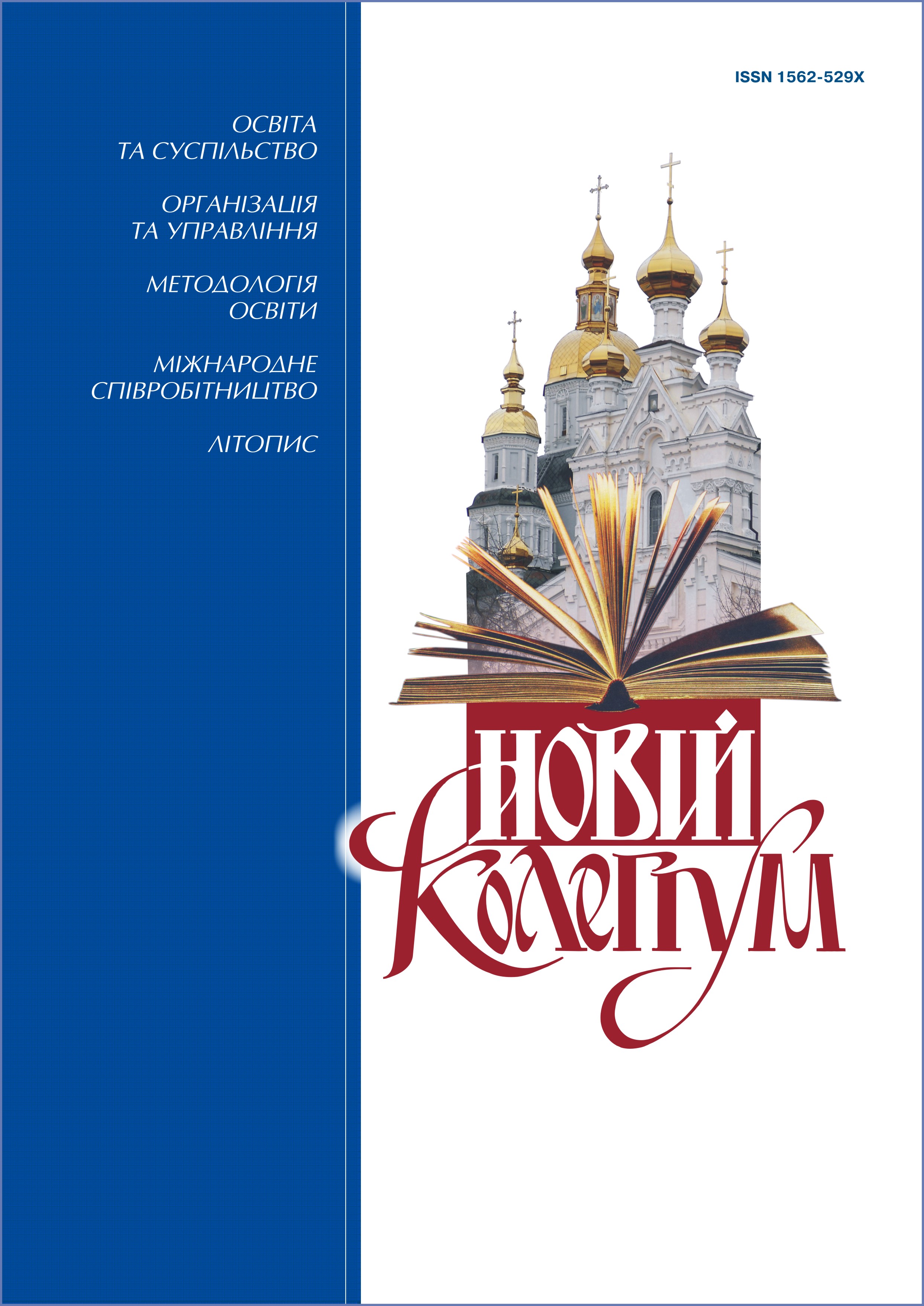JOHN DEWEY AND HIS CHICAGO'S SCHOOL
DOI:
https://doi.org/10.30837/nc.2020.1.22Keywords:
Child, impulses, instincts, passions, experience, research, dramatization, organic method of education.Abstract
John Dewey are distinguished educationalist, philosopher and psychologist. Dewey founded legendary Chicago's school with organic method education. Dewey explored children's inner impulses and attractions, which are natural resources active growth of child. Therefore pupils acquired knowledge on base own interests and passions. in school children played, experiments, invented. Thanks to such education pupils get to knows world in all beauty, creates, masters abilities and habits, which are necessary for life. in contrast to other schools, where education accomplished under dictation of teacher and pupils only learned by rote knowledge, in Dewey's school the children not receive knowledge passive, but by means own research work, which they realized in special school laboratories. Thanks to such approach the pupils consciously masters knowledge, involving own thought, feelings and fantasy.
in Dewey's school the pupils studied knowledge in close connection with real life, mastering different skills and habits. The children by means of history, geography, biology, chemistry, mathematics, geometry, physics, art and other knowledge learned of agriculture, cookery, carpentry, weaving. in Dewey's school important place take up the dramatization. By means dramatization the pupils cognized the world around and inner world. The children visited museums, libraries, exhibitions for studding history, culture and traditions of American nation. The different excursions, marches, cruises and trips assisted expansion horizon of pupil. So Dewey's school educated free, independent, creative, comprehensive personality.
John Dewey are author such books as “My Pedagogic Creed” (1897), “The School and Society” (1899), “The Child and the Curriculum” (1902), “How We Think” (1910), “Democracy and Education” (1916), “Experience and Nature” (1925), “individualism Old and New” (1930), “Philosophy and Civilization” (1931), “Art as Experience” (1934), “Experience and Education” (1938), “Freedom and Culture” (1939). This books are actual for Ukrainian education. They teaches as how we must treat to child and his spiritual life.
References
Українська радянська енциклопедія в 17 томах ; за ред. М. П. Бажана та ін.). т. 4. київ : ан УРсР, 1961. с. 384.
Дьюи Дж. Введение в философию воспитания. Москва, 1921. 63 с.
Хрестоматия по истории зарубежной педагогики ; под ред. а. и. Пискунова. Москва : Просвещение, 1981. с. 489–500.
Дьюи Дж. Школа и общество. Москва : тип. торг. дома а. Печковский, П. Буланже и к°, 1907. 60 с.
Dewey John The School and Society. Chicago: A Statement of The University Elementary School, 1907. 129 p.
Дьюи Дж., Дьюи Э. Школы будущего. Москва : Работник просвещения, 1922. 152 с.
Дьюи Дж. Психология и педагогика мышления. Москва : Мир, 1919. 202 с.
Дьюи Э. дальтонский лабораторный план. Москва : новая Москва, 1923. 153 с.

